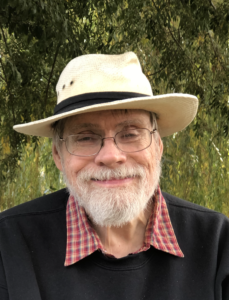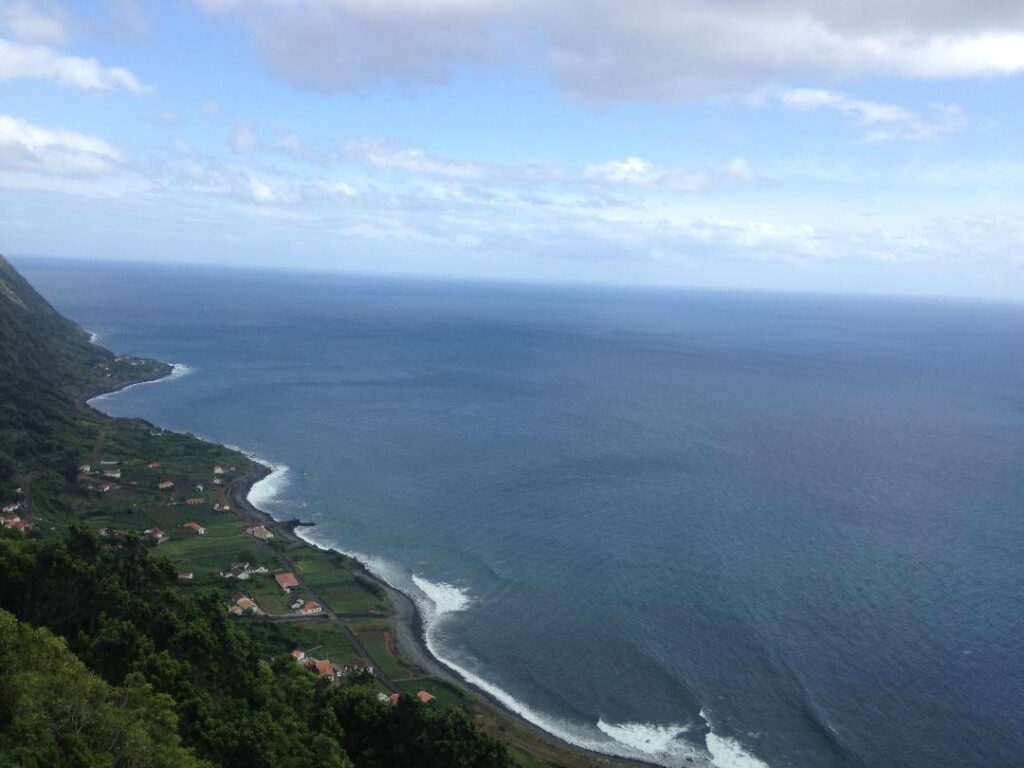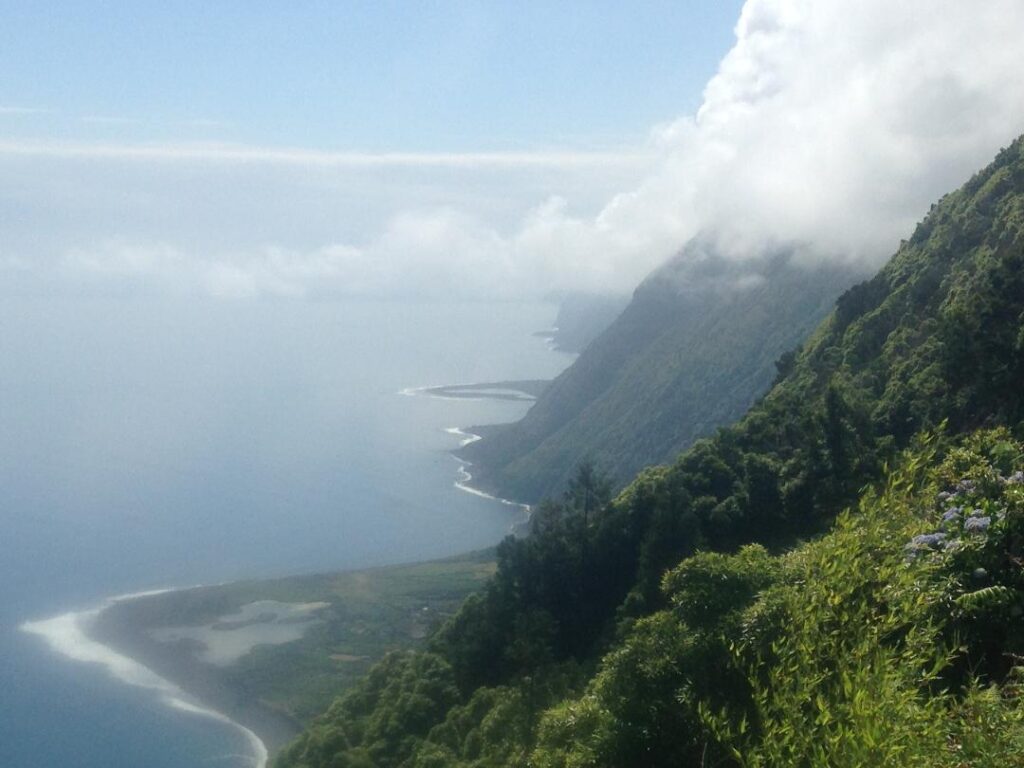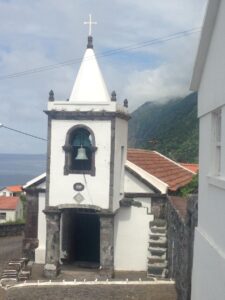
For Modesto Realtor Lourdes Bento, it all began by a faraway sea, where time itself seemed suspended in a chuva – a fine mist – of happy childhood memories.
Ms. Bento remembers the summers, watching her maternal grandfather, her Vovó, whom she adored, and the quiet sunny days she shared with him as he taught her all he knew about fishing. She remembers that he grew his own tobacco and also planted vegetables for the family table, as virtually everyone on São Jorge did, and still does. Ms. Bento remembers the warmth of the brick oven her family used for cooking, and the evenings filled with the music Vovó and her older cousins coaxed from their harmonicas. She remembers being transfixed by the ocean as waves crashed against the jagged outcroppings of her tiny island home.
Across the Atlantic, some 870 miles west of Lisbon, lie the Azores, an archipelago of nine volcanic islands that were first settled by the Portuguese in the 1430s, in the time of Prince Henry the Navigator. And this was where Lourdes Bento’s family had lived for generations, forging an often hardscrabble life out of what nature had furnished them.
“We didn’t have electricity or running water; maybe some of the wealthier homes had those luxuries,” Ms. Bento further recalls about those early years.
“If you needed to make an emergency call, the township had one telephone centrally located for that purpose. We went to the local chafaris – the fountain – for our water, and people got around on donkeys or horses, or on foot. You used what you had available to you. ”
My father remembers working from when he was 10 0r 11 years old, and that was pretty typical for boys of his age, so very early on he was working hard on other people’s land, basically working for his meals. Many of his friends didn’t have shoes. There was hunger and poverty. So you grew your own food, or fished from the sea.”
Born in 1970, Ms. Bento, the oldest of five children in her immediate family, would live on São Jorge until she was nine years old. The close-knit family ties, the wild, transcendent beauty of her Azorean homeland would always be close to her heart, but her mother and father knew that on the islands “there was only so much you can do,” for a living and her father had “a passion to thrive and build a better life for his family.”
And so in 1979 the Bentos looked to America for that brighter future, arriving first on the East Coast, “where part of my mother’s family lives in Rhode Island,” before settling here in the Valley – first in Gustine, then Hilmar, followed by Stevinson, and finally Escalon.
In moving to California, the Bentos were becoming a part of a rich cultural heritage that has seen this state – and particularly the Valley – benefit immeasurably from the infusion of Azorean immigrants, with their strong work ethics and traditions of close community ties.

Over the decades, Ms. Bento’s father toiled 16-hour days as he continued to work other people’s land – on a dairy – his love for and dedication to his family always a beacon in the night, as he and her mother eventually saved enough money to buy a home. In the meanwhile, they watched as each of their children flourish in this new land so far from the one they had known all their lives.
“I think I grieve more for the islands now than when we first left them,” Ms. Bento reflects. “I’m sure I missed my friends. And school was entirely different. Here, I was living on a dairy, surrounded by dry land, and on São Jorge I had a beautiful view of the ocean and the sky. So there was a grieving process I went through, but moving here was also an adventure – and that sort of offset the grieving.”
It didn’t take long for young Lourdes to adjust to the Valley, as she “learned a new language and just the everyday mechanics of life. That took me about two years.”
“After you migrate here, you’re kind of caught between two worlds” Ms. Bento explains. “Of course, you’re involved with the local Portuguese community through the church and other activities and what’s going on back on the islands, and that’s good because the traditions keep growing stronger that way.
But then you’re exposed to the ‘American’ side of things, and that’s mostly through school. School was very diverse, so that was pretty helpful. My father, though, always had a rule: Once inside the front door, you’re Portuguese. He didn’t want us to lose that. And he was wise to do that, because most of us are fluent in Portuguese to this day.”
Four decades later, Ms. Bento looks back on the decisions her parents made with love and a deep sense of gratitude. “Now that I’m older I recognize their bravery in choosing to leave the country of their origin and come to a land where they knew so very few people. They moved us here based on a hope and a wish and a dream. That was very brave.”

And for Ms. Bento’s parents, the wish happened, the dream came true – their family has thrived here in the Valley, and their children are deeply rooted in their respective communities. Although for a time she moved away from the Valley, Ms. Bento returned many years ago to raise her son as a single mom, giving him the opportunity to know his Vó e Vô – his grandmother and grandfather, and to be influenced by them. “Family’s important,” she notes, as is community.
“In my opinion, some of the Portuguese traditions are stronger here than they are on the islands. Part of the reason why I think we thrive here in this country is that we came to an area where other Portuguese families had already settled and we helped each other out. And then we all participated in the Festas and other local community events to keep the culture and the old traditions thriving.”
Ms. Bento readily acknowledges that she will always have a longing for the islands. “There’s the Portuguese word Saudade – a word that’s very hard to define or translate into English, but a longing, a yearning – that’s what I feel for the Azores.”
When she visited São Jorge and a couple of the other islands with her mother in 2015,
“It was quite emotional for me. The second my foot hit the soil, it brought me to tears, I wasn’t expecting that I also got to spend all that time with my mother – who has the biggest heart in the world – in a way that I had never experienced before, as an adult. That was absolutely amazing.
I was blown away by the raw natural beauty that’s there, and the respect for environment that exists on the islands, that I don’t see here in the States on a regular basis. The people on the Azores make do with what they have – everything is recycled and made optimum use of. Nothing goes to waste. If a tree falls, that tree is taken and turned into benches and table tops. Everything is repurposed. That’s the one big difference that I saw. There’s just more of a reverence and gratitude for certain things, for nature, and for taking care of it.

On the islands, it was important to slow down. I saw that even in the way that they care for their elderly. And I understand – things are very fast-paced here, so you lose some of those connections and important rituals.”
But while Ms. Bento knows she will always be emotionally pulled toward the Azores she is equally drawn back to the Valley, because that’s where her family is, where the community she’s grown to love and embrace still offers opportunities for herself and her son that wouldn’t be possible elsewhere. “I see myself as being both Portuguese and American,” she says proudly.
Ms. Bento is a warm and generous friend, always willing to go out of her way to help people if she can. This didn’t happen by accident.
“I feel blessed that I have a foot in two different places – it has broadened my horizons as an individual. I have a strong passion for family and community, and I thank my parents for this. As a family and culture, we have always helped others as we could with what we had. For as long as I can remember, anytime I or others visit my parents, we are greeted with food, drink, and don’t come home empty- handed. We are loaded up with produce from their vegetable garden and fruit trees. I think this comes from island living. You help each other to survive.”

Wonderful story to read grew up in Escalon I know it’s a tightknit community that’s great for raising children
Great story and wonderful pictures. My Grandfather was from St Jorge (my grandmother’s family of French descent from Pico) but all their pictures were in black and white, all their memories in Portuguese.
Thank you for sharing!